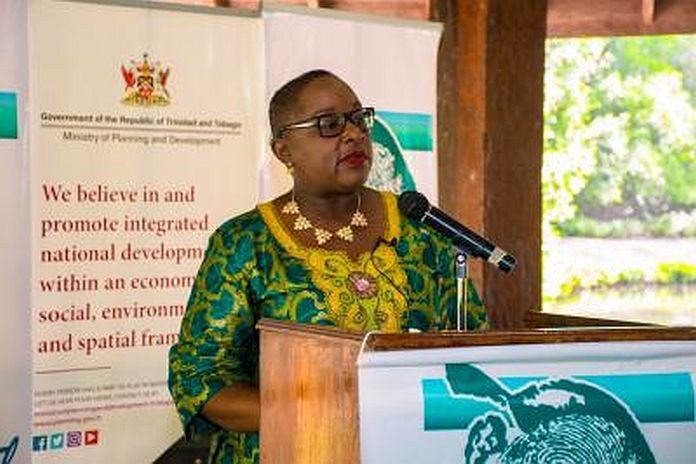PORT OF SPAIN, Trinidad – Planning and development minister Camille Robinson-Regis has announced participation in a US $11 million project called ISLANDS, which stands for “Implementing Sustainable Low and Non-chemical Development in Small Island Developing States”.
“This global programme seeks to address the sound management of chemicals and waste through strengthening the capacity of sub-national, national, and regional institutions; strengthening the enabling policy and regulatory frameworks in selected countries, and unlocking resources for implementation measures regarding chemical waste and pollution,” minister Robinson-Regis added that “through our willing participation in this project, government’s environmental thrust also reflected in the recent National Budget presentation will receive an additional boost.”
- Trinidad and Tobago will gain the advantage of the project’s four major programme components which include;
- Preventing the future build-up of chemicals in small island developing states (SIDS);
- Safe management and disposal of existing chemicals, products and materials;
- Safe management of products entering SIDS while closing material and product loops;
- Knowledge management and communication.
Trinidad and Tobago, through this programme, is part of the US $11 million Global Environment Facility (GEF) approved and funded child project, which is part of a broader programmatic framework and parent project to support the entry of thirty-three (33) small island developing states (SIDS) in the Caribbean, Pacific, Atlantic and the Indian Ocean into a safe chemical development pathway. The GEF ISLANDS programme is one of the largest investments made by the GEF Waste and Chemicals Focal Area and consists of seven Child Projects, three of which will take place in the Caribbean.
“Participating in the inception meeting for the project on October 5, stated that Trinidad and Tobago will actually benefit from regional and national project activities valued at approximately US $800,000.00 out of the total amount allocated for the global project,” minister Robinson-Regis, noted. “ The micro level, citizens’ health will be the focus through the environmentally sound management of hazardous chemicals in materials, products and wastes; strengthened institutional and technical capacity to reduce/control the current and future trade of chemicals and products containing hazardous chemicals and the development of a formal mechanism for interagency collaboration and training for pesticide inspectors and customs officers in the development of pre-screening and inspection guidelines to control the import of mercury-added products.”
The Basel Convention Regional Centre for Training and Technology Transfer for the Caribbean (BCRC-Caribbean) emphasised that there is also a component of the project with activities that include the development of regional labelling and product standards for chemicals and products in collaboration with the CARICOM Regional Organisation for Standards and Quality and national bureau of standards as well as selecting suitable alternatives to products containing mercury and persistent organic pollutants (POPs) and training stakeholders and consumers on the benefits of sustainable procurement.
In addition to Trinidad and Tobago, this project involves eight other Caribbean countries including Antigua and Barbuda, Barbados, Bermuda, Dominican Republic, Guyana, St Kitts and Nevis, Saint Lucia and Suriname.
The project is being implemented jointly by the United Nations Environment Programme (UNEP) and the Food and Agricultural Organization of the United Nations (FAO). The Basel Convention Regional Centre for Training and Technology Transfer for the Caribbean (BCRC-Caribbean) is acting as the executing agency for this project.
The ISLANDS project is fully supported by the ministry of planning and development, which has responsibility for environmental management through the environmental policy and planning division as well as other agencies including BCRC Caribbean and the environmental management authority. The ministry concluded participation in the United Nation’s Biodiversity Conference (COP15) is making the necessary preparation for participation in the UN’s Climate Change Conference in November, COP26, which will be held in Glasgow, Scotland.





